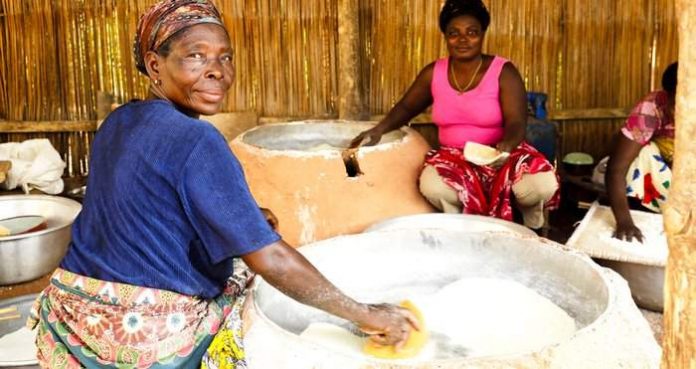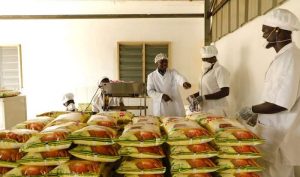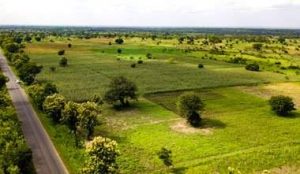
Since 2016, the African Development Bank has committed $1.7 million to the Project to Support the Employability and Integration of Young People in Growth Sectors (PAEIJ-SP) in Togo, which has helped create 35,000 jobs in agricultural SMEs.
When Agrokom and Agricultural Growth Junction of Togo (JCAT) launched in the Togolese capital of Lomé in 2011, they each had around a dozen employees, very few of whom were young people. Agrokom processes oilseeds (soya and palm nut) to make livestock meal and edible oils. JCAT produces and markets organic soy.
In 2016, Agrokom’s annual production capacity was only 180 tonnes of soybeans, while JCAT had capacity for 1,000 tonnes, not enough to meet the growing demand. Both companies then received support from PAEIJ-SP, which had a funding envelope of $3.4 million, half from the African Development Bank and the other 50% from Togolese microfinance institutions.
“The idea of the project was to first identify small and medium-sized agribusiness enterprises or sectors with strong growth potential, confirmed by growing markets,” explained Amouzouvi Kokou, project lead for the Bank.
“The next step was to support these enterprises’ growth strategies – by developing their capacities and providing them with funding – and to develop value chains around them, in this way creating employment opportunities for young people and women.”
Objectives met
Three years later, the project has proved a success. Agrokom processes 6,000 tonnes of soybeans a year, generating 3,242 direct jobs and 8,505 temporary posts in its value chain (procurement, processing and distribution). JCAT exports 10,920 tonnes of organic soy to the United States, Germany and China, creating 3,203 direct and 6,931 temporary jobs in the process.
PAEIJ-SP has created a total of 35,000 jobs (14,290 direct and 20,940 temporary), well in excess of the expected 20,000 and particularly benefiting young Togolese.
“The project has changed a lot of things in my daily life, because I have moved on from subsistence to cash crop farming,” explained Michel Komi Koutchena, a first-time entrepreneur in the maize sector.
“From an initial three hectares, I now have 11 hectares under maize. My production has almost quadrupled. My sales mean that I can meet my family’s needs and employ 63 people,” continued Michel, who expressed his joy at seeing the young people of his village no longer having to go to town or abroad to seek happiness.
Wadja N’Yemba, president of the Nipa Association in northern Togo, was also pleased with the results: “In the past, we each produced our soybeans, working individually. Then they told us about the launch of a project that would help us. We obtained loans to develop our soybean fields, to form associations and to generate more revenue.”
“This is an exemplar project where the Bank has demonstrated its comparative advantage for the promotion of agribusiness SMEs and the employment of young people in Togolese agricultural value chains. This project sets a benchmark for the Togolese government as far as youth employment is concerned,” said Kokou.
Produce even more
In October 2018, the 2018-2019 organic soybean harvest campaign was launched in the town of Agan, in eastern Togo. In the course of the ceremony, 15 threshers were handed over to producers to facilitate their harvest.
“I put 32 hectares of land under organic soybeans and I’m hoping to harvest 50 to 60 tonnes,” said Rahim Koffi Tolo, one of the biggest organic soy growers in Togo.
Togo has 1,765 growers, working a total of 7,292 hectares of cultivated land.
Source: AfDB








































